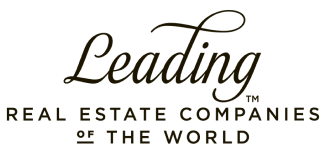Additional fees involved when buying
Category RealADVICE
Buying a home in South Africa is a goal for many. You try to save as much as you can, yet still enjoy the comforts of life, like monthly outings with friends and family. When you have finally saved enough to lay out a deposit for your dream home, you are faced with the other costs that you need to bear - the costs that are not included in the sale price of the home.
"Buying a home also involves many expenses other than the purchase price and in most cases, you would need to stay put for a few years for the value of the property to grow sufficiently for you to recoup these expenses," says Rudi Botha, CEO of SA's biggest bond originator company, BetterBond.
What are some of these additional fees that home buyers are liable for?
Deposit
The deposit is the initial payment for your new property. Majority of the time buyers are required to have about 10% of the purchase price to secure a bond. Having a deposit helps secure your purchase as most banks and financial institutions may not grant a 100% loan for your bond. The larger your deposit amount, the lesser will your monthly premiums be.
Bond Initiation fee
The initiation fee is charged by the bank at the start of the loan and can be paid upfront as a once-off fee or broken down within your monthly payments. This fee is regulated by the National Credit Act - R1,000 plus 10% of the purchase price in excess of R10,000 with an overall maximum of R5,000. The bond registration fee and the bond attorney's fee are also for the buyer's account.
Transfer duty tax
Transferring the property from the seller's name to the buyer's name involves a cost. Transfer duty costs can be hefty and depends on the purchase price of the property, as stipulated by SARS. If the property is within the R900 001 - R1 250 000 price bracket, then buyers can expect to pay 3% of the value above R900 000. Should the property be priced between R1 250 001 - R1 750 000, then R15 000 + 6% of the value above R1 250 000 is due, and so forth. Properties under the R900 000 price tag do, however, not require a transfer duty.
Transfer costs
Transfer costs are to be paid to a conveyancer or transfer attorney. These once-off charges cover the costs to register the buyer as the legal owner of the property at the Deeds Office. This ensures that the new owner's legal title to the property is protected. The amount to be paid varies according to the purchase price of the property and is based on tariffs recommended by the Law Society. For instance, a purchase price of R650 000.00 for a property will attract a transfer cost of approximately R11 070.
Levies, rates and taxes
If you have purchased a freehold property then you are liable for rates and taxes. In most cases, the municipality requires a deposit. This amount depends on the municipal value of the home. Furthermore, if the property is a sectional title purchase, then you are responsible to contribute to levies to the managing agent, as well as rates and taxes to the municipality, of which both entities will require an upfront payment.
Repairs and maintenance
You may want to renovate or make repairs to your dream home once you have moved in. Having extra money for a fresh coat of paint or perhaps installing an air conditioner are additional costs that you will need to consider.
Home insurance
This covers the building for structural damage, which may be caused by storms or fire. When you have a bond, the bank or financial service will advise you to take out homeowner insurance. You can save money by shopping around for competitive quotes.
To get a better idea of just how much you actually need to pay for your dream home, make use of our easy to use calculators. Contact RealNet now for more information on the additional fees involved in purchasing a home.
Author: 17





































